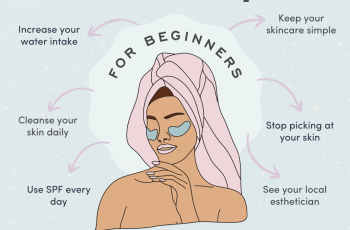
How Often Should You Use Azelaic Acid?
Azelaic acid is undoubtedly an ingredient in skincare that doesn’t seem to get the recognition it deserves. There are other ingredients that are often better than azelaic acid. Especially when it comes to treating acne, pimples, and breakouts, there are some ingredients that are the king of blemishes. But don’t be fooled into thinking that azelaic acid can’t deliver impressive skin results and banish frequent acne flare-ups. The downside to this powerhouse is that, despite being around for a few years now, there’s still a lot to learn about.
So let’s turn our attention to exactly how often you should use azelaic acid, and what benefits you can expect from incorporating it into your daily routine. Don’t forget: If you want to learn more about azelaic acid, you can check out a full blog post on it and its benefits for your skin. Read here for more information.
How Often Should You Use Azelaic Acid?
Whether the product you’re using is prescription or over-the-counter, many dermatologists recommend applying a thin layer all over your skin first. You should do this after consulting with your doctor, dermatologist, or medical professional to ensure that azelaic acid is safe for you and your skin to use in your daily routine.
When using products rich in azelaic acid, you can start with a pea- or marble-sized amount and apply it evenly to your face and neck. If your skin tends to be sensitive, it is recommended to use the product every other day to avoid unwanted side effects.
Can Azelaic Acid be used daily?
Yes, you can! Of course, do a patch test 24 hours beforehand to make sure your skin can tolerate the use of azelaic acid. Here are some tips on how to effectively incorporate azelaic acid into your daily routine.
Start slowly and use it once every night.
Once your skin develops tolerance, you can use it twice a day.
If you want a gentler approach, choose a product like a face wash or cleanser that doesn’t stay on the skin for too long.
After using any product containing azelaic acid, use a moisturizer with a humectant like hyaluronic acid.
Use a product with an SPF of 30 or higher every day to protect against sun damage caused by UV rays.
If you experience signs of itching or irritation, stop using the product immediately.
By following these tips and the instructions on the product packaging, you will benefit from this powerful ingredient without any side effects.
When should you use azelaic acid routinely?
A lot depends on the product the ingredient is formulated with, as this will determine when you use it in your daily routine. The general skin rule is to apply products from thinnest to thickest consistency to avoid formulas competing with each other or blocking each other from absorption into the skin. If you use it in a serum, you can mix it with your favorite moisturizer once or twice a day after cleansing your skin and using an exfoliating toner. This ensures that the dead skin cells that build up are removed and any remaining dirt, bacteria, and impurities are swept away, allowing the following steps in your daily regimen to quickly penetrate the lower layers of the skin.
Can I use Azelaic Acid Twice a Day?
Yes, many skin care experts recommend using Azelaic Acid twice a day if you want to get the most out of this powerful ingredient. Although the word “acid” carries some cautious connotations, Azelaic Acid is one of the few chemical peels that is well tolerated by sensitive people. This causes Azelaic Acid to work on the outer layers of the skin by “telling” cells how to function, resulting in a smoother, healthier complexion and reversing signs of premature aging.
What Not to Mix with Azelaic Acid?
It is not recommended to mix Azelaic Acid with the popular and highly effective BHA salicylic acid. This is because of the increased potential for irritation and dryness. Compared to other acids used in various formulas, azelaic acid increases photosensitivity to UV rays, not radiation. Unfortunately, if you find yourself being a little lax with your daily sunscreen application, all the hard work azelaic acid puts into restoring your skin to its healthiest state is wasted.
Does Azelaic Acid Need to Be Washed Off?
No, not if you want to see the effects of this powerful acid quickly. There are many products that have high levels of azelaic acid, up to 20%, although these are usually prescription products. To reap the benefits of this acid, it’s best to apply serums, oils, creams, and moisturizers to your skin and leave them on as long as possible.
Is It Normal for Azelaic Acid to Burn?
Yes, some common side effects of using azelaic acid include itchy skin, burning sensations, stinging, and tingling. Depending on the amount of acid in the formula, this may be the most noticeable. To avoid this or other issues, be sure to consult a doctor or dermatologist before using azelaic acid in your skin care routine.
What Is Best Paired With Azelaic Acid?
The best ingredients to combine with azelaic acid for optimal results are hyaluronic acid, niacinamide, and popular AHAs like glycolic acid and lactic acid. You can alternate days and different routines of using these ingredients to benefit from each ingredient’s potent effects on the skin while minimizing the risk of side effects. Since azelaic acid is considered safe for those who are sensitive or prone to rashes like rosacea, you may never stop once you incorporate it into your routine.


